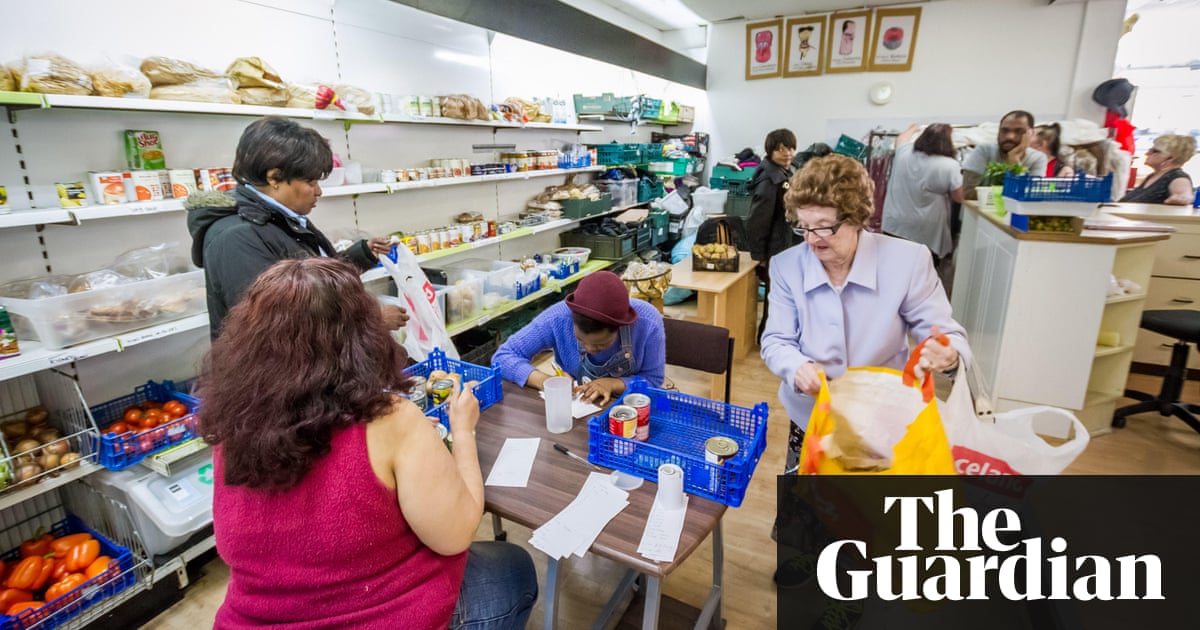
The UK’s largest food redistribution charity is helping to feed a record 772,000 people a week – 60% more than the previous year – with food that would otherwise be wasted, new figures reveal.
One in eight people in the UK go hungry every day – with the most needy increasingly dependent on food banks – yet perfectly good food is wasted every day through the food production supply chain.
FareShare said it was now redistributing food that otherwise would have been wasted with an annual value of £28.7m, up from £22.4m last year.
“Three years ago we were helping to feed 211,000 people a week – today it’s three-quarters of a million,” said FareShare’s chief executive, Lindsay Boswell. “We reported in 2015 that we provided food across 320 towns and cities – now it’s 15,000. It’s not rocket science to see there has been a massive hike in demand for food from frontline charities.”
FareShare currently redistributes about 13,500 tonnes of surplus food every year donated by supermarkets, wholesalers and suppliers to 9,653 charities including hospices, homeless shelters, care homes and women’s refuges, but its annual target is 100,000 tonnes. Demand for surplus food has soared against a background of growing dependence on food banks and rising homelessness in the UK.
FareShare says it has the capacity – and a waiting list of charities wanting help – but needs access to more food. Its solution is a government fund that would cover the costs of storage and transport. Available to any charity or producer that incurs the costs of redistributing food, it would also save charities and other beneficiaries £150m by making free food available to them. A public petition supporting this move attracted more than 16,000 signatures, which guarantees a government response.
Meanwhile, last year the Trussell Trust, the UK’s biggest food bank network, gave out a record 1.3m food parcels to an estimated 666,000 people – up 13% on the previous year. Members of the public donated 12,955 tonnes of food to its regional food banks, it added.
“Food poverty can happen to anyone, and it can happen quickly,” said Boswell. “The 10,000 charities we support provide food to people who have lost their homes, left the armed forces and struggled to adjust, escaped violent relationships, fallen into drug or alcohol misuse or simply can no longer cook for themselves.”
City Harvest, the largest of the London-based food redistribution charities delivers more than 15 tonnes of food each week. Founded in 2014, it focuses on the “last mile” between a shop or event and charity, and has so far redistributed 900 tonnes of food waste, creating 2.1m meals for vulnerable people in London. It also takes food from major wholesalers such as New Covent Garden Market and Western International.
City Harvest chief executive, Laura Winningham, said: “We work in tandem with Fareshare who have been extremely supportive of our food rescue work. We are collecting this year from the Chelsea flower show. The food donated last year was fantastic. Surplus is often dictated by the weather and last year in the sunshine people browsed the garden exhibits more and ate less so vulnerable people across London ate extremely well when we redistributed the surplus.”
from Environment | The Guardian https://ift.tt/2JaDdQJ
via IFTTT

No comments:
Post a Comment